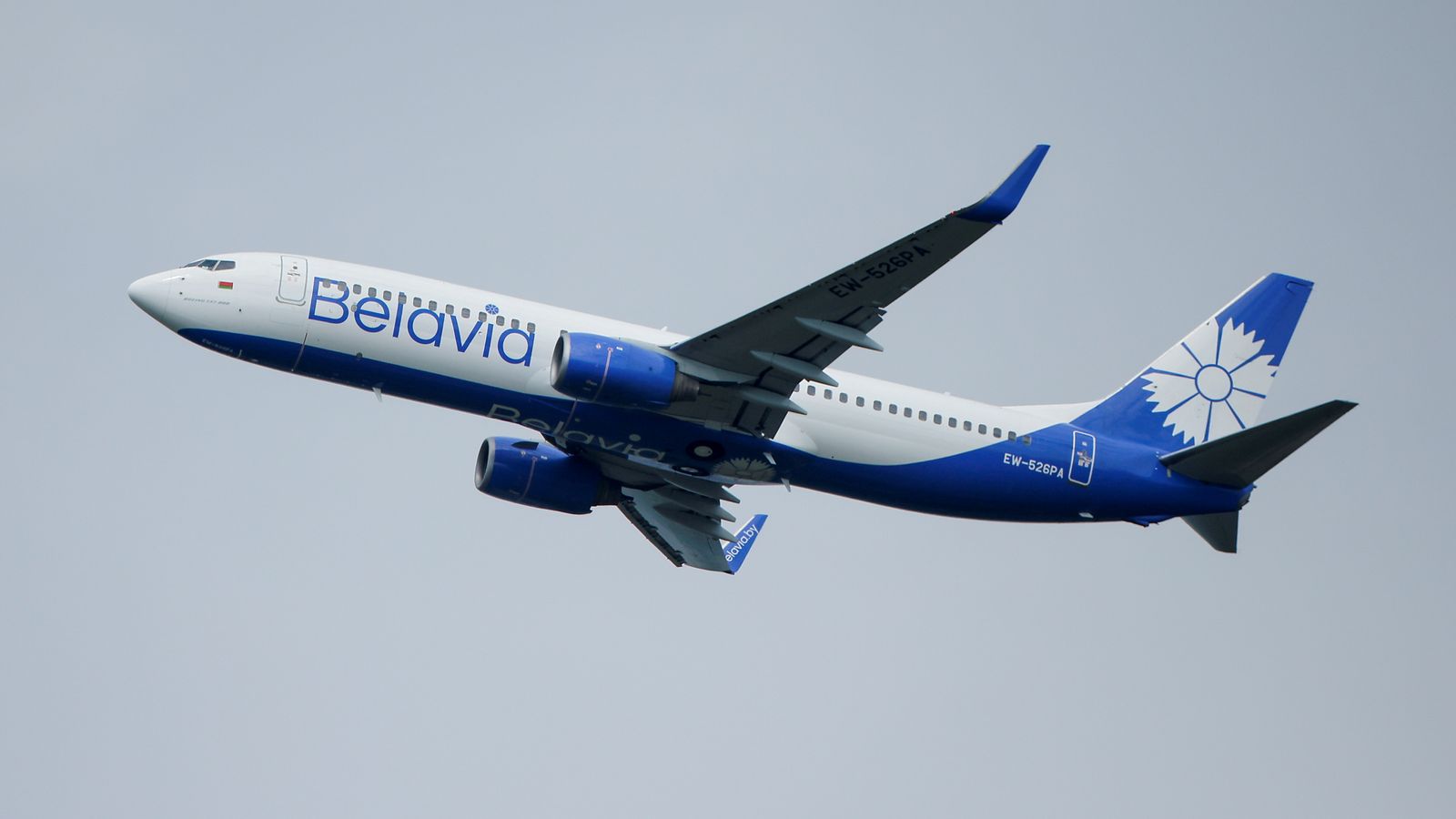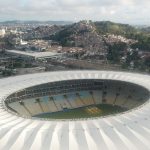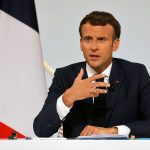Brussels is to ban Belarusian planes from EU airspace as it ramps up pressure on the Minsk regime over the forced diversion of a passenger jet and arrest of a government critic.
The move will also see European airlines strongly encouraged to avoid flying over the ex-Soviet country, which sparked an international outcry after a Ryanair flight was forced to land by a fighter jet and dissident journalist Roman Protasevich was detained.
Please use Chrome browser for a more accessible video player
The 26-year-old has subsequently given an interview to state-controlled TV, claimed to have been made under duress, in which he appears to praise the Belarusian leader Alexander Lukashenko, saying he had “acted like a man with balls of steel”, despite the “pressure” of opposition movements.
The step by the EU, which forms part of a wider package of sanctions against Belarus, is due to come into effect at 10pm (UK time) on Friday barring any last-minute objections by member states, which is not expected.
According to the European air traffic control agency, Eurocontrol, about 400 civilian planes usually fly over Belarus every day.
Many airlines had already announced they would avoid the country, including Lufthansa and Air France.
Belavia, the Belarusian national carrier, runs flights to some 20 airports in Europe including Helsinki, Amsterdam, Milan, Warsaw, Frankfurt, Berlin, Munich, Paris, Rome and Vienna.
Enforcement of the ban will fall to national governments, many of whom are also members of NATO.
The measure will serve to increase the isolation of Mr Lukashenko, who has been president of Belarus since the office was established in 1994.
The close ally of Russian leader Vladimir Putin is often referred to as Europe’s last dictator.
He won re-election for a sixth time in 2020 with 80% of the vote, in a ballot deemed “neither free nor fair” by the EU.
Since winning the disputed election last August, Mr Lukashenko has cracked down on dissenting voices, with many opposition figures arrested and others forced into exile.
Mr Protasevich was arrested after his flight from Athens to Vilnius, Lithuania, was diverted following an alleged bomb threat.
In the latest video released, he tearfully confesses to his role in anti-government protests and admitted plotting to topple Mr Lukashenko by organising “riots”.
Insisting he had not been coerced, Mr Protasevich said: “I immediately admitted my guilt in organising massive unauthorised actions.”
Withdrawing his previous criticism of Mr Lukashenko, he added: “When I became more involved in political topics, I began to understand that he was doing the right thing and I certainly respect him.”
At the end of the 90-minute interview he covered his face with his hands and wept, with marks left by handcuffs clearly visible on his wrists.
Analysis: Dissident’s tearful interview sends out message to Lukashenko’s critics
By Adam Parsons, Europe correspondent
The words of Roman Protasevich have to be seen through a prism.
Firstly, he was speaking to state-controlled media and in Belarus, that link is becoming ever closed.
His interview was recorded entirely on behalf of creating propaganda for Alexander Lukashenko – if Mr Protasevich had made any criticisms in his so-called interview, they would never have been broadcast.
Would he have dared to criticise?
He is a resolute character, but it’s not hard to imagine his time in detention has been profoundly unpleasant.
His friends and family have already said that they believe he has been mistreated, and even tortured, while in captivity.
So what he said was almost certainly said under duress.
How else to explain his praise of the courage of Mr Lukashenko – a man who Mr Protasevich clearly loathes?
But, just like his original arrest, the subtext of this interview is what matters.
The message being sent out from Minsk is that Lukashenko’s critics can never rest – that the Belarus regime has the determination to first arrest someone on an aeroplane flying over the country, and then to force them into empty words of praise.
This isn’t about Mr Protasevich changing his mind.
It’s about Lukashenko flexing his muscles and humiliating an opponent – showing the world that, whatever sanctions that may impose, he is still in charge.






















